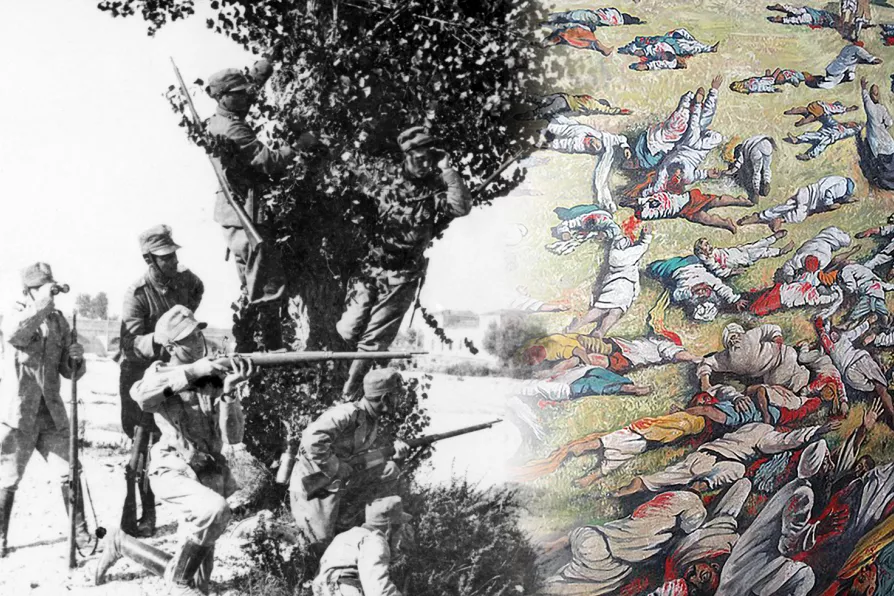The far right thrives on division, but denying racism within the left only strengthens it. As we mobilise for the All Together March, real solidarity demands honesty about our own failures, argues ROGER McKENZIE

 Army troops during World War One (1914-1918) and a mural of the Jallianwala Bagh massacre
Army troops during World War One (1914-1918) and a mural of the Jallianwala Bagh massacre
SINCE 1933, people have been trading the red poppy for the white — or worn them side by side — as an act of commitment to peace, to challenge any attempt to justify war and to remember all victims of war, including those whose histories are systematically erased.
Victims of colonial wars are seldom acknowledged during mainstream remembrance, but this Remembrance Sunday the Peace Pledge Union (PPU) is launching a new initiative, Decolonising Remembrance, which is aimed at highlighting how the history of British warfare is inseparable from the history of empire.
During the first world war, millions of colonial troops were mobilised, with Britain recruiting extensively from India and the West Indies, while France enlisted soldiers from west Africa, Algeria, Indochina and beyond.

On International Day of Solidarity with the Palestinian People, HUGH LANNING warns that the US-led “Comprehensive Plan” entrenches decades of Western complicity in Israel’s domination and denial of Palestinian land and rights

HUGH LANNING reports on an initiative that will aim at counteracting the anti-Palestine narratives spoon-fed to Western governments and the mass media by Israel’s propaganda machine

RON JACOBS salutes a magnificent narrative that demonstrates how the war replaced European colonialism with US imperialism and Soviet power











